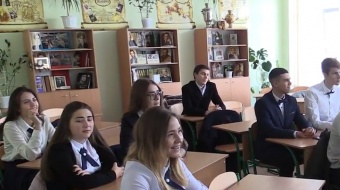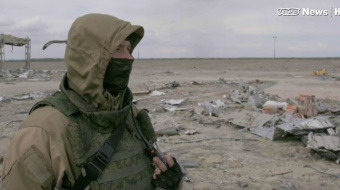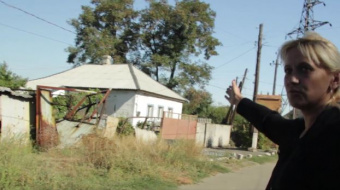25 years of separatism in Donbas: Background Part 3
25 years of separatism in Donbas: Background Part 3
25 years of separatism in Donbas: Background Part 1
25 years of separatism in Donbas: Background Part 2
Formation
In 1991 the vast majority of Donbas residents voted for independent Ukraine at the referendum (83.9% in the Donetsk region and 83.6% in the Luhansk one). It seemed that the ideas of Donbas separatism could be utilized, but no, the “game” had only started. The illusions that the declaration of independence would immediately lead to its turning into a paradise automatically disappeared. Economic crisis hit the country. It was difficult for people throughout the whole country, but for the Donbas independence as well as democraic freedoms without sausage did not have any value. Out-of- date industry disappointed the residents of the Donbas. The industry had been mainly supported with subsidies in the USSR large-scale planned economy, but it was not efficient in the conditions of “peripheral” capitalism. So, it was dismantled. This “birth injury” gave birth to the sad myth that the Donbas “fed” the whole country, and that economic problems were the result of artificial sabotage. It goes without saying that privatization was implemented in a barbaric way in the Donbas where whole towns were left without support after the closure of mines and plants. However, in the mentality of people, there was a transfer of social anger from the real stirrers of the Donbas economy destruction – the nomenclature elite – to Ukraine, the nomenclature elite that trapped the rich Donbas with false slogans and then ruined it.
From the very beginning, the representatives of this very nomenclature successfully manipulated the public opinion diverting the anger from themselves and using phobias and prejudices of Donbas residents.
For example, Verkhovna Rada deputy of the first convocation Victor Tikhonov, the future head of Luhansk regional council, said at the second congress of the “Luhansk people’s movement” (“LPM”) in 1992 that armed “sichovi streltsi” (Western Ukrainian armed formations of the period of WWI) came to the meeting of the Ukrainian parliament and made him vote for the adoption of the Declration of Ukrainian Independence.
He also said that it was necessary to revive the Donetsk-Krivoy Rog republic. And, from the very beginning, local regional elites were the curators of separatist drives. Later, leaders of “LPM” Valeriy Cheker and Victor Gnilorybov were the “court ideologists” of the nomenclature grouping of Yefremov-Tikhonov, “scientifically” moulding the crooked political course of Luhansk “nomenclature”. Cheker is playing the same role in “Luhansk people’s republic” (“LPR”).
Desynchronization of social and political processes in Ukraine and in the Donbas at the beginning of the 90s – the 2000s may be observed if one looks at electoral preferences. At the 1998 parliamentary election the alienation of the Donbas was not so vivid when its residents voted for the communist party of Ukraine – the symbol of the previous life in the USSR – the same way as residents of the other parts of Ukraine excluding Western Ukraine (at that time it was more like the alienation of “Galician Piemonte” from the country). However, the parliamentary election of 2002 demonstrated the growing problem. In the Luhansk region, communists won (39.6%), a kind of a protest voting against corrupted president Leonid Kuchma. There was a campaign of protests in Ukraine – “Ukraine without Kuchma”. The campaign united the left and the right opponents of the regime. (It is worth mentioning that Leonid Kuchma became president mainly due to the support of the residents of the East of Ukraine who he promised Russian and friendship with Russia). However, residents of Luhansk chose the most retrograde part of opposition, ignoring the political forces supported by the rest of Ukraine – national democrats and pro-European liberals grouping around opposition leaders Yushchenko and Timoshenko (“Our Ukraine” – 3.6%, “BYT” – 1.5%). It is quite understandable as the protest voting for residents of Luhansk did not meant “better for Ukraine” but disappearance of Ukraine for the sake of chimeric coming back to the USSR, to “sovok”, as the demagogues from the communist party called for.
An even a more “interesting” process was taking place in the Donetsk region. Local elites, strengthened in “gangster s’ wars” of the 90s, concluded a pact with Kyiv: they will make it possible for Kuchma’s party “For Unified Ukraine” to win in the Donbas in exchange for non-interference in their business (36.8% – “For Unified Ukraine”, communists – 29.7%, Yushchenko’s “Our Ukraine” – 2.5%, and only in two regions of Ukraine the main opposition party did not exceed the 3% barrier – in the Donetsk region and Sebastopol).
The essence of the pact was quite transparent – Donetsk will be loyal only in exchange for preferences for its leaders who would make a kind of a separate enclave for their “subjects” who they will ideologically educate in their own way: If Kyiv presses, the ideological “work” intensifies.
These two processes – orientation of the electors to the reactionary utopia and the support of ghettoization of the local electorate by the local elite – were, per se, the breeding ground for the further development of separatism.
Kostyantyn Skorkin, for RN
New service "Explain Ukraine". This is a daily mailout of three articles which were written about the situation in the Donbas by Donbas journalists and translated into English. Honest vision of people who work in the field is unbiased and fresh which is crucial in the world which is full of desinformation and propaganda. We try to share this vision in out daily mailout. You can subscribe here.














